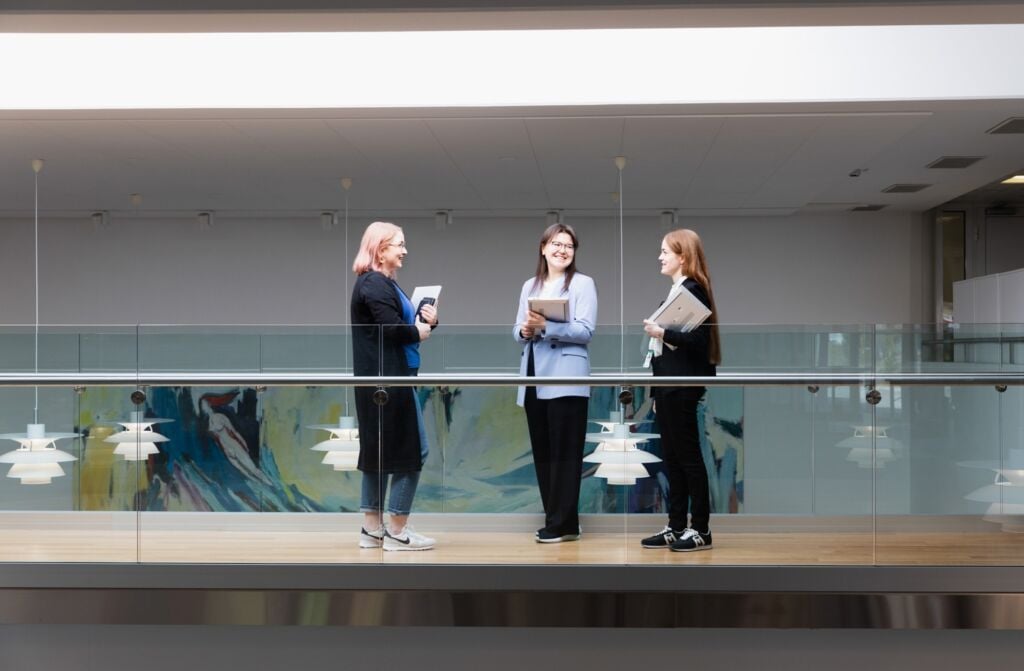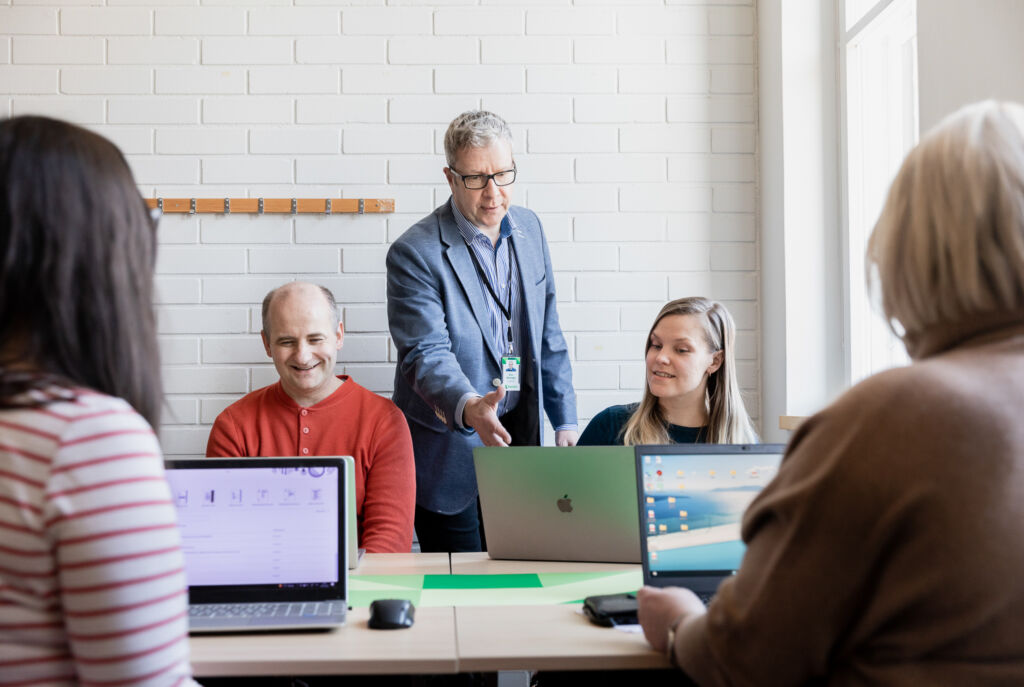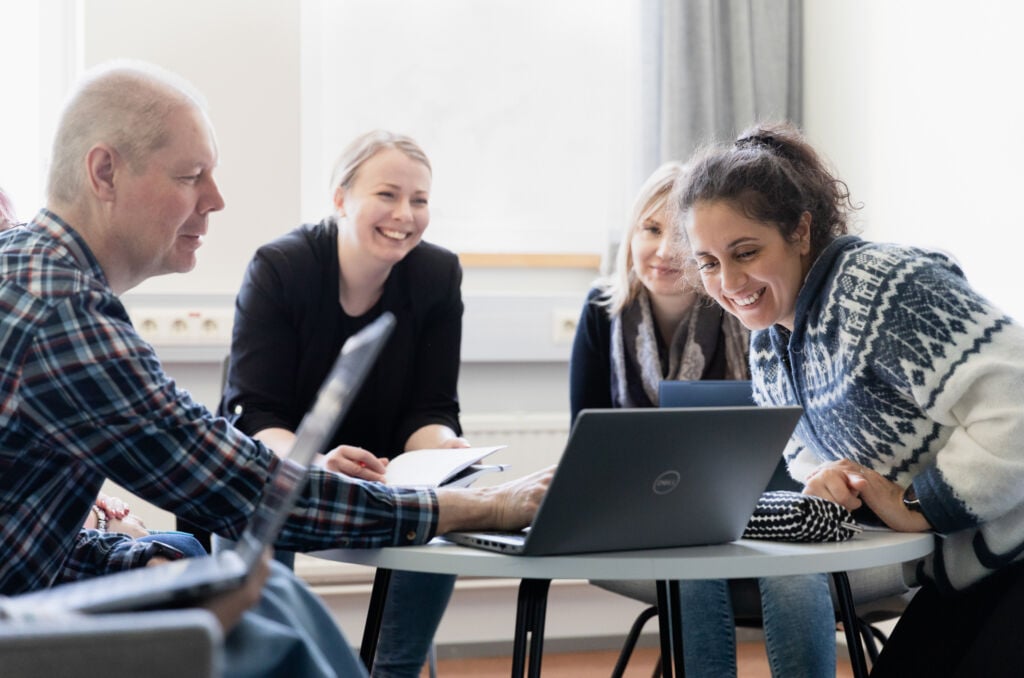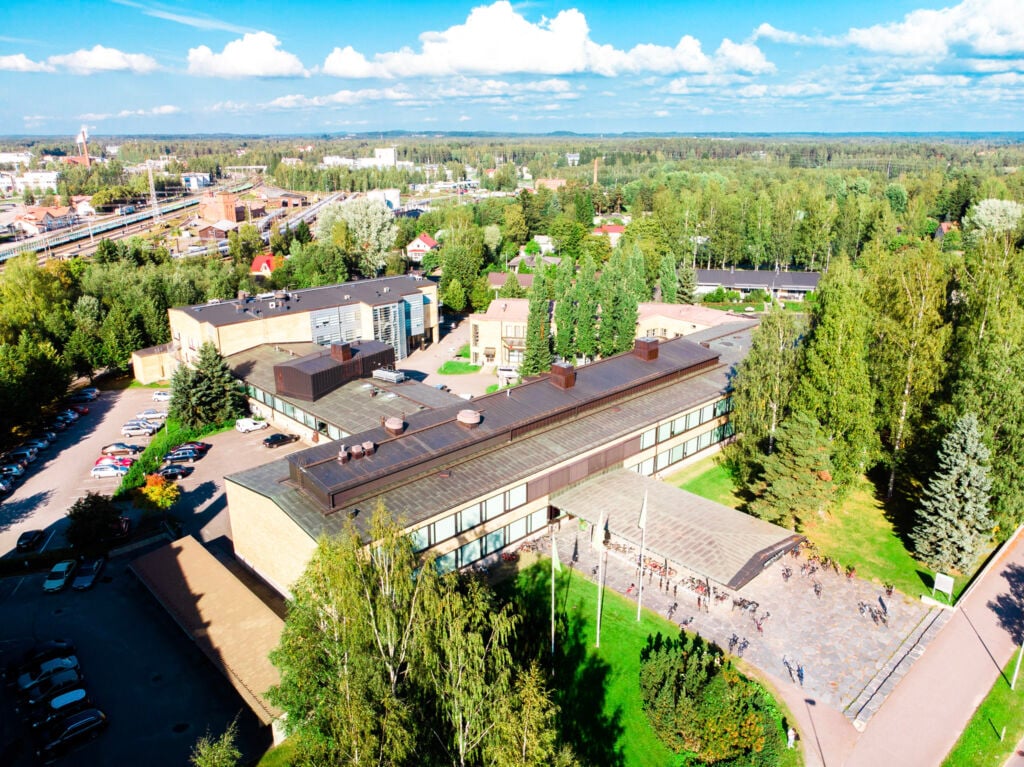Introduction
All Finnish higher education institutions prepared an accessibility plan in 2022. The preparation of the plans is based on a report by the Ministry of Education and Culture published in 2021: Kohti saavutettavampaa korkeakoulutusta ja korkeakoulua (Ministry of Education and Culture 2021, in Finnish). The publication presents objectives and policies for promoting accessibility for all those working in the higher education institution, but especially those belonging to underrepresented and minority groups. The factors behind the examination of accessibility include family background, regional accessibility of higher education, gender segregation, migration background, functional difficulty or disability, belonging to a linguistic or cultural minority, different kind of learning style and belonging to a sexual or gender minority.
The accessibility criteria developed in the national OHO project (The Inclusive Higher Education Network 2019) are used as the structure of Karelia’s plan. The criteria are divided into the following areas:
- Values, attitudes and culture
- Management
- Physical environment
- Digital accessibility
- Teaching and learning
- Support and guidance
- Communication
- Student selection
The plan describes the current state of Karelia’s accessibility and measures to promote accessibility in 2022–2024. The plan will be updated in 2024 for the next target agreement period 2025–2028.
Karelia’s accessibility plan has been prepared as an inclusive process for the university community. We have carried out preparatory work in co-operation with the persons responsible for the different areas of the plan and experts. The staff worked on the plan at the staff meeting. With regard to students, the preparatory work was carried out in co-operation with the student union POKA’s Board and representatives as well as the persons in charge of student groups (VIP students).
This plan brings together existing plans and operating models related to accessibility. We consider the equality and non-discrimination perspective in all activities, and the ethical principles of the university of applied sciences are highlighted in staff orientation, for example. The active caring model includes tools for intervening in discrimination and harassment for both staff and students. Karelia’s counselling and well-being plan discusses the matter from the perspective of teaching and studying. For years, regular meetings between the student union and Karelia have covered perspectives related to accessibility and outlined related development measures.
1. VALUES, ATTITUDES AND CULTURE
(Responsible person Jaana Tolkki)
Criteria
- The atmosphere at the university supports equality
- University supports and promotes communality and solidarity
- Individuality and diversity of students is recognized and students are cared about
- Students can have an impact on their own studies, as well as the teaching and operations at their university
- The opinions of students and staff are heard and they are encouraged to be active
- Accessibility is discussed at the university
Current state
At Karelia, an equality and non-discrimination plan is regularly assessed and updated. Karelia has been a discrimination-free zone since 2011. The diversity of students is considered in many ways. Communality and its strengthening have long been key objectives of Karelia. However, there is no systematic and regular discussion on the different areas of accessibility in Karelia from the perspective of all areas of accessibility. The coronavirus pandemic and changes in the world situation have affected Karelia’s sense of community.
| Target state | Measures 2023 | Measures 2024 |
| – All members of the Karelia university community are aware of the policies and operating methods related to different areas of accessibility, including addressing shortcomings. | – Interactive and phased processing of the different areas of accessibility (4 areas). – Inclusion of the accessibility plan in the orientation phase of studies for all new students and orientation of new staff | – Interactive and phased processing of the different areas of accessibility (4 areas) |

2. MANAGEMENT
(Responsible person Petri Raivo)
Criteria
- University management is officially committed to promoting accessible university education
- University management is committed to promote accessibility in practice
- University practices are transparent and open
Current state
Accessibility has not been considered in Karelia’s strategy or worded clearly. Specification of the responsibilities related to accessibility and inclusion is required. The university management is committed to promoting accessibility. The perspectives of accessibility and inclusion are not systematically considered in the orientation of new staff. Student diversity and equality are considered at all levels. Training and coaching have been organised for staff on some themes. The assessment of accessibility is not systematic. Karelia operates consistently in accordance with its strategy and values, but strategic choices are emphasised in communications. Karelia’s practices are transparent and open. The staff know the procedures and instructions to the extent that they have been agreed upon.
| Target state | Measures 2023 | Measures 2024 |
| – Karelia has clearly agreed on principles of accessibility, which in practice guide the management and activities of the university. The related responsibilities have been defined and the implementation of the principles is regularly assessed. | – Appointment of responsible persons – Linking accessibility and inclusion themes to quality management and enterprise resource planning – Coaching for management and immediate managers on accessibility – Definition of indicators to be used in the assessment of implementation | – Evaluation and development of accessibility based on evaluation data |
3. PHYSICAL ENVIRONMENT
(Responsible person Jouni Varis)
Criteria
- Physical environment of the university (outdoor premises, buildings, rooms and furniture) is accessible
- Information about the physical accessibility of the university is available on the university public website
- University has practices to ensure the staff know about the accessibility and location of classrooms and other premises
- Physical accessibility is taken into account in the rescue plan of the university
Current state
All Karelia facilities have been built and renovated to meet the needs of the university in the past 15 years. The perspectives of accessibility and inclusion in the physical environment have been considered in connection with renovations both in connection with the premises and outdoors premises. However, access to all facilities is not yet accessible. The physical environment has also been continuously developed between major renovations. There are gender-neutral toilet facilities on both campuses and their number will be increased in connection with future renovations. Communication on the accessibility and inclusion of the physical environment on campuses, in the university community and on the website is inadequate. Physical accessibility has not been considered in the rescue plan.
| Target state | Measures 2023 | Measures 2024 |
| – Karelia’s physical operating environment is accessible and inclusive. The university community has information on the accessibility and location of the facilities. The matter has been clearly communicated on campuses, the community and the website. | – Gender-neutral toilets will be built on the Wärtsilä campus in connection with the renovation. – Information related to the accessibility of facilities on the students’ Pakki portal, in Karelia’s intranet and on Karelia’s website. – The perspectives of physical accessibility are recorded in the rescue plan. | – Continuous development of facilities related to accessibility in connection with renovations. – Developing visual and virtual guidance related to accessibility. |

4. DIGITAL ACCESSIBILITY
(Responsible person Minna Rokkila)
Criteria
- Digital learning environments and teaching materials are accessible
- Teaching staff is familiarized with the accessibility demands and receive support in using them in practice
- Students are familiarized with and receive support in the use of digital learning environments and learning materials
- On-line contents of the university (e.g. intranet) are accessible and their usability is high
- Students and staff can give feedback on the accessibility of digital learning environments and on-line contents, and the feedback has an impact
- Digital accessibility is developed purposefully
Current state
Karelia’s learning environments and teaching materials are mainly accessible and continuously developed. There are clear guidelines on the accessibility of learning environments. Teaching staff have been familiarised with the requirements of digital accessibility. Similar orientation for administrative and support service staff has not been implemented. Course implementations require harmonisation and clarification. The content of Karelia’s intranet reformed in 2022 meets the accessibility requirements. Students receive orientation and support for the use of digital learning environments at the beginning of their studies in the Karelia-start. For some, completing a study unit before starting their studies is challenging, while others are unable to absorb a large amount of information in a short period of time. Students can give feedback on digital accessibility and the activities will be developed on this basis.
| Target state | Measures 2023 | Measures 2024 |
| – Digital learning environments and study contents are digitally and pedagogically accessible. | – Consistent and accessible structures in Moodle. Organising training and support for teaching staff in the implementation of study unit templates. – Survey for teachers on the use of systems and digital aids in teaching – Videos used in teaching are produced subtitled in accordance with the Directive on Web Accessibility | – Systematic training for teachers on the use of digital systems and aids based on a survey |
5. TEACHING AND LEARNING
(Responsible person Marjo Nenonen)
Criteria
- Teaching staff has sufficient competences to design and implement accessible education
- Diverse teaching methods are used in education
- Learning environments and materials are accessible and appropriate
- Students get support for developing their study skills
- Students’ individual needs are taken into account through their individual study plans (HOPS)
- Diverse evaluation methods suitable for different types of learners are used in evaluation
- Accessibility is taken into account in practical training and collaboration with employees
Current state
The principles for the implementation of Karelia’s education are defined in the degree regulations, the process descriptions of education, the counselling and well-being plan, the curricula and implementation plans, and Peda-akatemia’s website. Different learners are considered in the teaching and assessment of Karelia, and they are supported in developing study skills. However, the attention is not systematic throughout the university. An individual study plan is drawn up for all students, considering the students’ individual needs. Teacher tutors and guidance counsellors meet students regularly, and individual guidance is ensured in development discussions as planned. Students receive support and counselling in practical training.
| Target state | Measures 2023 | Measures 2024 |
| – Karelia has a shared understanding of the principles of accessible pedagogy. Different kinds of students are considered in the implementation of the education. | – Defining the principles of Karelia’s accessible pedagogy as an inclusive process. – Including the perspective of accessibility in student feedback surveys – Systematic utilisation of the Peda-akatemia as part of the promotion of digital pedagogy competence – Workshops related to the diversification of evaluation for teaching staff. | – Developing accessibility and communality in blended and online studies – Systematic mapping of study skills of all new students and development of support measures based on needs |

6. SUPPORT AND GUIDANCE
(Responsible persons Päivi Putkuri and Janne Väätäinen)
Criteria
- Students receive the support and guidance they need at all stages of their studies
- Students get support and information for planning their studies
- Students may receive individual arrangements all throughout their studies
- Collaboration between teaching staff and support services promotes accessibility of the university
- Accessibility is taken into account in international training and student exchange
- University offers enough services to support student well-being
- Universities students’ unions and organisations support the promotion of accessibility
- University library services take accessibility into account
Current state
Karelia has updated its counselling and well-being plan, which is followed in different degree programmes and at different stages of studies. At the moment, we place particular emphasis on providing counselling in the final stages of studies, and supporting graduation and employment. Based on student feedback, Karelia’s support services function very well when compared nationally. Students receive support and information for planning their studies. The process of special support for students has been updated and the teachers have been introduced to the new operating model. Student welfare services have been systematically developed and strengthened in close co-operation with the student union POKA. Accessibility requirements are well considered in the library’s plans, and students receive individual guidance in the use of library services.
If necessary, individual guidance and additional financial support from international exchange funding programmes are available for students taking part in international exchanges.
| Target state | Measures 2023 | Measures 2024 |
| – Karelia students have equal access to support services and teaching arrangements that meet their needs. We especially pay attention to the needs of international students. | – Strengthening and supporting individual counselling in the early stages of studies in language studies, mathematics and natural sciences studies and digital skills – Workshops for teachers to meet different learners. Training teacher tutors in accessibility matters – Building a visual service map for counselling and well-being services – Instructions for staff will be created for S2 (Finnish as a second language) student learning support and language-oriented guidance. – The student’s individual S2 (Finnish as a second language) needs are considered in the individual study plan (ISP) – Clarification of the career guidance process | – Developing counselling and study readiness before starting studies in co-operation with vocational education and training |

7. COMMUNICATION
(Responsible person Ville Kivihalme)
Criteria
- University communication promotes equality and diversity
- University staff communication is accessible
- Accessibility is considered in webpage design, published materials and use of social media
- Strategic planning of communication and guidance takes accessibility into account
- Staff has sufficient resources to implement and develop accessible communication
Current state
Karelia’s communications are accessible as a whole and support equality and diversity. Accessibility means taking people’s differences and diversity into account in the planning and implementation of communications. The development of foreign-language staff’s Finnish skills will be supported. Communication mainly takes place in Finnish, and the most important matters are communicated to students in English as well. Communication related to all aspects of accessibility is not systematic. Accessibility issues are discussed at Karelia.
| Target state | Measures 2023 | Measures 2024 |
| – Communication in Karelia takes the diversity of students and staff into account. Accessibility requirements are also considered in external communications | – Policies for Karelia’s bilingual communication – The needs for developing personnel competence in plain language and in communication in English will be mapped. – Organising communication clinics related to communication accessible to staff – Communicating to international partner institutions and partners on Karelia’s accessibility | – Organising training for staff on accessible communication, plain Finnish and communication in English. – Organising communication clinics related to communication accessible to staff |

8. STUDENT SELECTIONS
(Responsible person Pirjo Uusoksa)
Criteria
- Student selection process of the university is accessible
- Information on student admissions is accessible to the applicant
- Student selection information is accessible to the applicants
- The results of student admissions are in an accessible format
Current state
Student selection takes place 1) through a national joint application process, which is organised three times a year and 2) on the basis of a separate application process. Karelia’s student selection processes are implemented in accordance with the national practices of universities of applied sciences and in an accessible manner. Karelia participates in national development work related to the application and selection system in different working groups. Accessibility-related information is not easily available to those applying for or considering a study place.
| Target state | Measures 2023 | Measures 2024 |
| – Accessibility requirements are considered at all stages of the national joint application process for Karelia’s student selection, separate application process and the application process for co-operation studies between open universities of applied sciences and higher education institutions. | – Issues related to accessibility are added to the Karelia website in connection with applicant information – Work time reservations will be secured naturally for employees involved in the university entrance examinations. – The offer of the open university of applied sciences and registration for studies are clear and the start of studies is smooth – Introduction of a joint cross-institutional studies service RIPA for higher education institutions. | – Work time reservations will be secured naturally for employees involved in the university entrance examinations. Increasing the number of places in the separate application process for preparatory education for university studies – Establishing the use of the cross-institutional studies service (Pirjo Uusoksa) |

IMPLEMENTATION OF THE PLAN AND ASSESSMENT OF IMPLEMENTATION
The Vice President is responsible for implementing the plan as a whole. The persons responsible for each area are responsible for implementing the plan in their own area, and each Karelia employee considers the objectives of the plan in their work. The implementation of the plan is assessed annually in connection with the management review.
SOURCES
Ministry of Education and Culture. 2021. Kohti saavutettavampaa korkeakoulutusta ja korkeakoulua. Opetus- ja kulttuuriministeriön julkaisuja 2021:35. <http://urn.fi/URN:ISBN:978-952-263-838-0>
The Inclusive Higher Education Network. 2019. Accessibility criteria. A tool for assessing the accessibility of a higher education institution. Final report of the Inclusive Higher Education project. <https://esok.fi/hankkeet/oho-hanke/julkaisut/accessibility-criteria/at_download/fileo>

